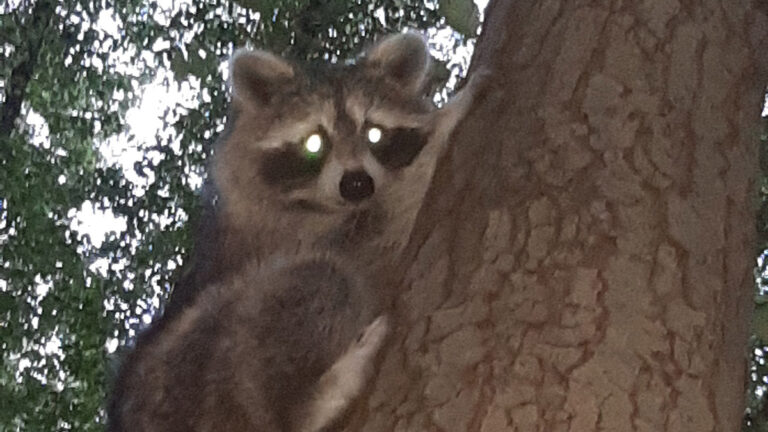The raccoon (Procyon lotor) is an alien species that is widespread in mainland Europe (e.g., France, Belgium, Germany, Poland). Populations originated from escaped pets and introductions. The raccoon is already confirmed in the fauna of Hungary. The spread of this invasive species from North America could threaten native ecosystems. For this reason, the 1st European Raccoon Conference was organised in Lyon, France, on 16-17 March 2023. At the meeting, the Invasion Biology Division of the National Laboratory for Health Security was represented by MATE with a presentation by Krisztián Katona and his colleagues.
The presentation summarized the most important knowledge on the occurrence of the species in Hungary to help future research and management of the species. According to the annual wildlife management reports available in the National Game Management Database (Csányi et al. 2022), the raccoon appeared in the hunting bag in 1998 with 9 individuals, and since then there have been a few hunted individuals per year. The most recent yearly hunting bag of raccoon was 19 individuals in 2021/2022. The occurrence of the species is sporadic, but most of the individuals were shot in the central part of Hungary, in Pest County. In the last two decades, there is evidence of occasional urban occurrence of the species in Budapest. In the framework of our invasive species project (RRF-2.3.1-21-2022-00006), funded by the National Research, Development and Innovation Office, we are conducting research on the condition, reproduction and diet composition of the hunted individuals, we are analysing their genetic origin and relatedness, and investigating the nest predation and urban appearance of the raccoon.
Related documents
Book of Abstracts – 1st European Raccoon colloquium
Raccoon (Procyon lotor) in Hungary: signs of a slowly emerging population
This research was supported by the National Talent Programme of Hungary and the Prime Minister's Office (NTP-NFTÖ-21-B-0288), and by the National Laboratory for Health Security (RRF-2.3.1-21-2022-00006), Centre for Ecological Research, Budapest, Hungary.



